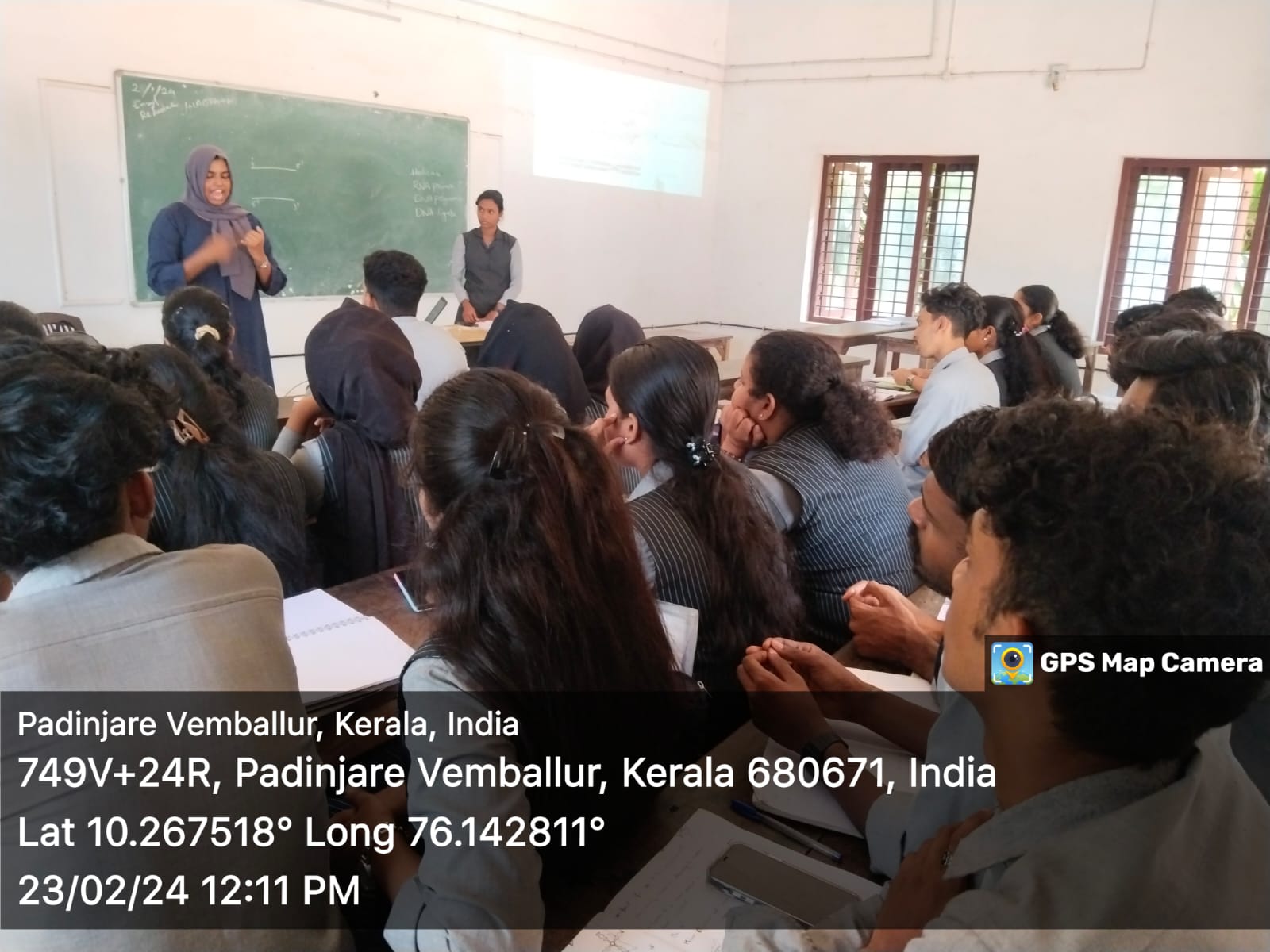
Interaction of B.Sc. students with successful alumni is a best practice followed by the Department of Aquaculture. On February 23, 2024, the VI semester B.Sc. Aquaculture students of M E S Asmabi College had the privilege of interacting with Ms. Fahmida Parvin, a distinguished alumnus of the department (2014 Pass out Batch) who is currently pursuing research in Marine Biology at Andaman Centre of Central University, Pondicherry. The session, which took place from 10:45 to 11:30 AM, featured a motivational speech and an insightful discussion on her research experiences in the Andaman and Nicobar Islands. 2. Welcome and Introduction The event began with a warm welcome by the Head of the Department, who introduced Ms. Fahmida Parvin to the students. The introduction highlighted her academic journey from M E S Asmabi College to her current research endeavors, setting an inspirational tone for the session. 3. Motivational Speech Ms. Parvin delivered a compelling motivational speech, touching upon several key aspects of her academic and professional life: Passion and Perseverance: She emphasized the importance of being passionate and persistent in one's studies and career. Her own journey was cited as an example of how dedication and hard work can lead to significant achievements. Continuous Learning: She stressed the need for continuous learning and staying updated with the latest developments in the field of marine biology and aquaculture. Networking and Collaboration: Ms. Parvin spoke about the value of building a network of professionals and the benefits of collaborative research. 4. Importance of Marine Biology A significant portion of Ms. Parvin's speech was dedicated to the importance of marine biology: Understanding Marine Ecosystems: She highlighted the critical role marine biology plays in understanding and conserving marine ecosystems, which are vital for maintaining biodiversity and supporting human life. Career Opportunities: Ms. Parvin pointed out the diverse career opportunities available in marine biology, ranging from academic research to roles in conservation organizations and government agencies. 5. Experiences in Andaman and Nicobar Islands Ms. Parvin shared her enriching experiences as a researcher in the Andaman and Nicobar Islands: Biodiversity Hotspot: She described the islands as a biodiversity hotspot, rich in unique marine species and ecosystems. This makes the Andaman and Nicobar Islands a critical area for marine biological research. Research Challenges and Solutions: She discussed the various challenges faced during field research, such as logistical issues and harsh weather conditions, and how she overcame them with adaptive methodologies. Field Research Techniques: Ms. Parvin provided insights into the techniques used in her research, including underwater surveys, specimen collection, and data analysis. 6. Student Interaction The session included an interactive segment where students had the opportunity to ask questions and engage with Ms. Parvin. Key topics discussed were: Marine Biology as a Career: Students inquired about the different career paths and opportunities in marine biology. Research Methodologies: They were curious about specific research methodologies and techniques used in marine studies. Academic Challenges: Ms. Parvin shared practical advice on overcoming academic and research-related challenges, drawing from her own experiences.

